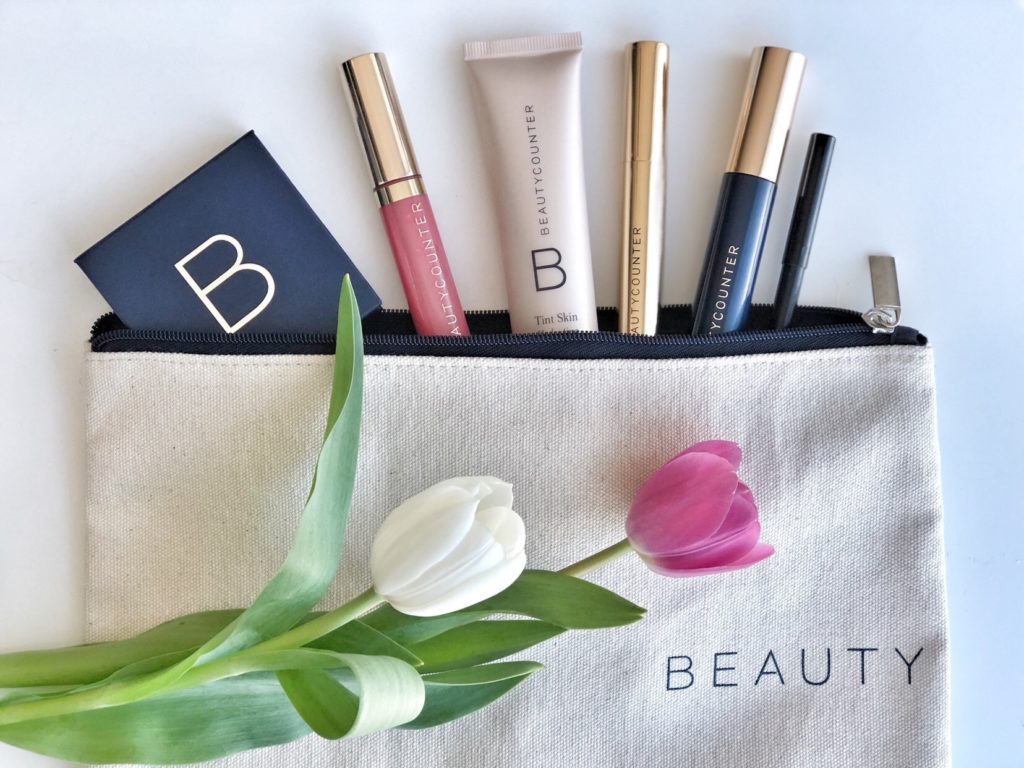We all shop for personal care products and have a vested interest in their overall performance, but have you ever thought about the safety of the products you use? Unfortunately, the current legislation in both Canada and the US is incredibly under-regulated. The majority of products on our store shelves are potentially and/or conclusively detrimental to human health.
WHAT’S IN OUR PRODUCTS AND WHY SHOULD WE CARE?
Not all chemicals are bad for us. Our body is made up of chemicals, and so is everything else, including food and water. Toxic chemicals, however, are bad for us.
Definition of toxic :
1: containing or being poisonous material especially when capable of causing death or serious debilitation
(Merriam-Webster)
Toxic ingredients in personal care products refer to chemicals that can harm cells or organs, cause neurological damage, and/or alter important biological systems. Of the more than 80,000 chemicals registered for use in personal care products, most have never been tested on human health or have safety data.
Industrial grade chemicals such as plasticizers (chemicals that keep concrete soft), degreasers (used to get the grime off auto parts), and surfactants (to reduce surface tension in water, like in paint and inks) are found in everyday beauty products! Imagine what that does to your skin, your fertility and to the environment!?
HOW DO TOXIC CHEMICALS ENTER OUR BODIES?
Toxic chemicals can enter our bodies directly through:
- Our airway: when we inhale particles from powders and sprays
- Our skin: when we apply products to our skin, lips, and nails
We know that even small doses of ingredients can have a big effect when absorbed through the skin. For example, the growing popularity of patches applied to the skin containing medication such as nicotine and birth control.
TOP 12 TOXIC CHEMICALS TO STEER CLEAR OF:
- BHA and BHT 7. Silosxane based compounds
- Coal tar dyes 8. Parfum (a.k.a. fragrance)
- DEA-related ingredients 9. PEG compounds
- Dibutyl phthalate 10. Petrolatum
- Formaldehyde-releasing preservatives 11. Sodium laureth sulfate (SLS)
- Parabens & Benzenes 12. Triclosan
WHAT DO THE WORDS ‘NATURAL’, ORGANIC”, “GREEN”, “SAFE” MEAN WHEN IT COMES TO COSMETICS?
Legally? Nothing. There are currently no labeling laws in Canada.
Due to major loopholes in federal laws, cosmetics can be labeled “natural,” “sustainable”, “clean” and nearly any other word that comes to mind without containing ingredients that accurately meet those descriptions. Even products certified as organic can contain as little as 10% organic ingredients, depending on the certifier.
ARE SKINCARE AND MAKEUP PRODUCTS MADE IN CANADA SAFE?
Depends. Many cosmetics companies think of our health and safety in a very short-term context, working to avoid acute reactions, such as a rash or irritated eyes. Few companies are paying attention to our long-term health.
If a company wants to introduce a new product to market in Canada, it doesn’t need to inform Health Canada until 10 days AFTER that product is ON THE MARKET. Isn’t that insane!?
The European Union has spent the past two decades banning or restricting more than 1,400 ingredients. The US has only banned 30 ingredients, which is better than Canada. In Canada, we have a restrictive “HOT LIST” of 700+ ingredients but No Banned Ingredients. Chemicals linked to hormone imbalances, reproductive health problems and infertility, learning disabilities, birth defects, and cancer are allowed in the products we use every day!
BEAUTYCOUNTER: A BRAND THAT YINSTILL CAN STAND BEHIND
Beautycounter is a clean beauty brand with a mission to get safe products into the hands of everyone. They have banned the use of more than 1,600 questionable or harmful chemicals through their “Never List” all while ensuring their products perform and that they’re as indulgent as any other luxe shampoo, lipstick, or oil. It is also a one-stop-shop for all your personal care product needs.
In the US, Beautycounter has been a leader on Capitol Hill since its founding in 2013 and in 2017 created the Counteract Coalition, a collective of 20 Better-for-You beauty brands committed to pushing safer cosmetic ingredient laws. In May of 2019, Beautycounter met with Canadian MPs to lobby for stronger toxins and cosmetics laws and to urge Members to act on cosmetics reform that will advance consumer safety.
CHANGE is COMING!
To see the Beautycounter line click here or contact chantal@yinstill.com for more info.


